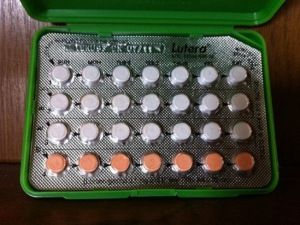News
Science News in Brief: Taking ‘the pill’ increases risk of suicide, new research shows
This article is more than 8 years old.
In other stories, a tax on plastics is scrapped and some ear treatments may be a waste of money

Taking the birth control pill is looking like an increasingly risky option (photo: ParentingPatch)
A new study carried out by researchers at Denmark’s Rigshospitalet has shown that all forms of hormonal contraception lead to markedly more suicides and suicide attempts.
The study, published in The American Journal of Psychiatry, is the first to unequivocally prove a connection between the use of the contraceptive pill and suicide risk, reports Politiken.
Researchers followed 476,000 women for an average of 8.3 years from when they turned 15 in 1996 until 2013. During this time almost half the women started to take hormonal contraceptive products of one form or another. In all, there were 6,999 suicide attempts and 71 suicides amongst the women in the group.
“We saw a tripling of the number of suicides and a more than doubling in the number of attempted suicides in the group of women using hormonal contraception,” said the leader of the research team, Professor Øjvind Lidegaard.
Last year, the same team published a paper drawing attention to the fact that this form of contraception increases the risk of clinical depression by 70 percent.
Tax on phthalates and PVC to be scrapped
To ease the administrative burden on companies, the Danish government has decided to scrap a tax on products containing phthalates and PVC, reports Chemical Watch. These chemicals are used in everyday items such as tape, binders, gloves, aprons, rainwear and protective suits, and they have been suspected of causing cancer and sterility.
The tax repeal was condemned as “completely incomprehensible from an environmental and health perspective,” by Christian Ege, the head of the ecological secretariat Det Økologiske Råd.
“PVC plastic and phthalate softeners are environmentally harmful products that do not belong in a modern society. If you abolish the tax you will give PVC and phthalate products a competitive advantage, while taxpayers will pay for the environmental damage.”
An official report by the Danish government says that the tax is no longer considered to have any “significant behavioural effect on health or the environment”.
Costly ear treatments don’t work
Danish doctors and specialists are extremely fond of using drains to treat middle ear infections in children; so much so, that last year, 60,000 children were treated this way. This equates to 3 out of 10 children up to the age of five having an ear drain, reports Videnskab.dk. However, as well as costing society around 40 million kroner per year, there is precious little scientific evidence that drains actually work. A number of studies have shown that middle ear infections often go away on their own without causing any permanent damage to the infected person – whether they have a drain inserted or not.










































